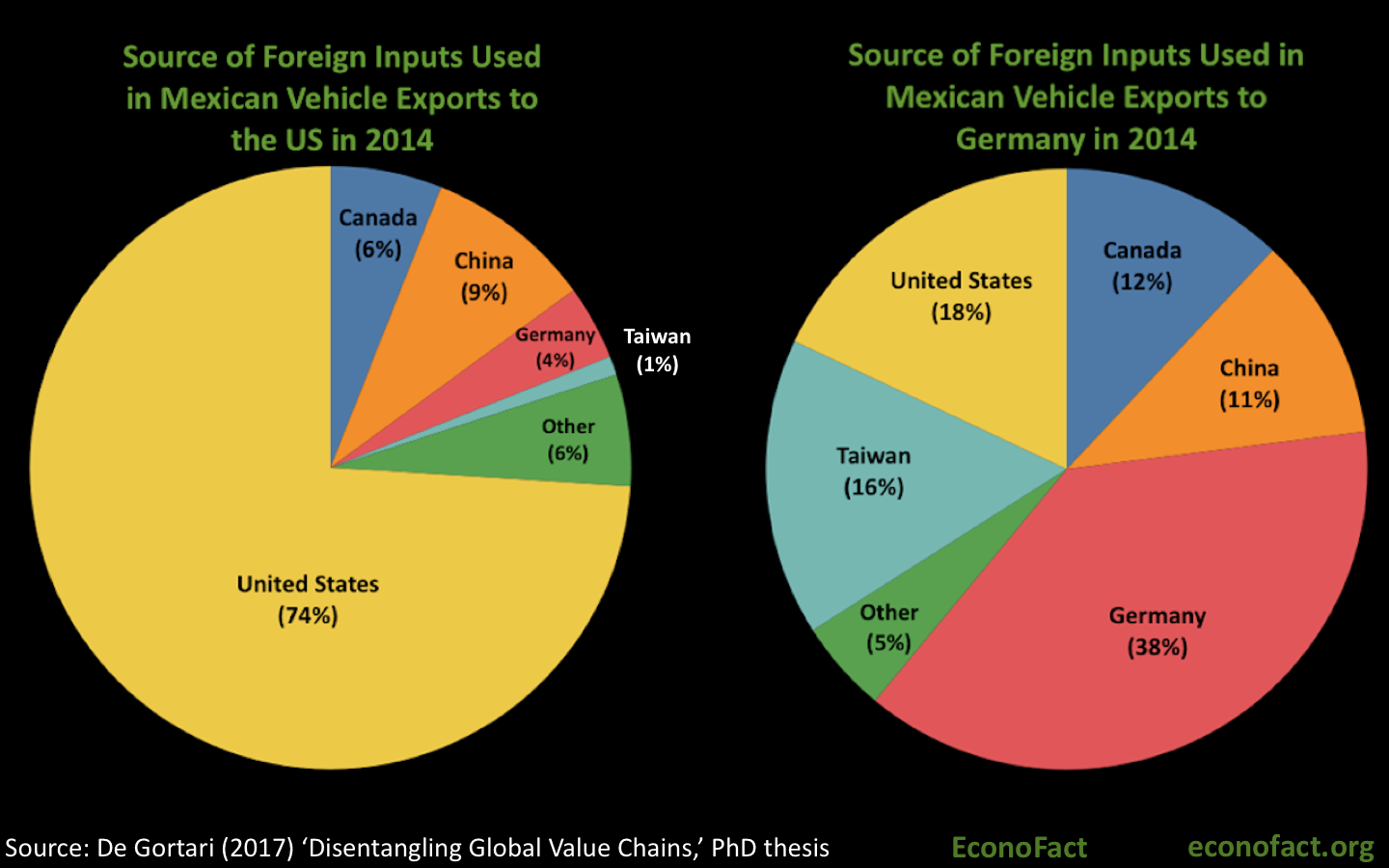Trade War Costs in a Supply Chain World
When Americans buy a car from Mexico, half of what they buy was earlier imported from the United States (74% of foreign imports in the car are from US, foreign imports and labor account for 2/3 of value, .74*.66=48.44–corrected from earlier version). 
The firms exporting vehicles from Mexico to the U.S. have set up very deep supply chains between the two countries — much deeper than previously thought. About 74 percent of all the foreign parts used by vehicle assemblers in Mexico that export to the U.S. are imported from the U.S. itself. In contrast, only 18 percent of the imported parts used by Mexican firms exporting to Germany come from the U.S. (see chart). Because the parts that come from the U.S. also include inputs from other countries, it is important to account for international trade along all stages of the supply chain. I estimate that thirty-eight percent of the value of the average finished vehicle exported from Mexico to the U.S. is American value returning home, more than double the 17 percent figure that had been commonly considered.
That’s Alonso de Gortari writing at EconoFact.
In a world with deep supply chains a trade war will be much more expensive than in a conventional world. In a conventional world, a tariff only reduces efficiency at the margin as it relocates production from foreign to domestic firms who in the initial equilibrium have equal costs. But in a deep supply chain world a tariff isn’t just a tax on imports it also raises the costs of production of domestic firms. In a deep supply chain world, for example, a tariff on car imports from Mexico raises the cost of US auto production.
Paul Krugman recently argued that for an equal reduction in trade, Trump’s trade war would be less costly than Brexit because Trump’s tariffs will raise revenue and only distort production on the margin. In contrast, he argued that Brexit would raise costs on all units of production. In a deep supply chain world, however, the difference between Brexit and Trumpit are not so large. In such a world, tariffs increase the price of imports and make it more costly to produce goods domestically.